Filter by

Organic-Inorganic Hybrid Nanomaterials
Advances in Polymer Science enjoys a longstanding tradition and good reputation in its community. Each volume is dedicated to a current topic, and each review critically surveys one aspect of that topic, to place it within the context of the volume. The volumes typically summarize the significant developments of the last 5 to 10 years and discuss them critically, presenting selected examples, e…
- Edition
- -
- ISBN/ISSN
- 978-3-319-13593-9
- Collation
- -
- Series Title
- Advances in Polymer Science
- Call Number
- 620.115 ORG
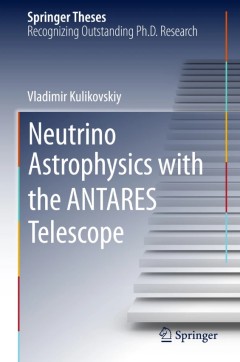
Neutrino Astrophysics with the ANTARES Telescope
This thesis is devoted to ANTARES, the first underwater neutrino telescope in the Mediterranean sea. As the main scientific analysis, a search for high-energy neutrino emission from the region of the Fermi bubbles has been performed using data from the ANTARES detector. A method for the background estimation using off-zones has been developed specially for this measurement. A new likelihood for…
- Edition
- 1
- ISBN/ISSN
- 978-3-319-20411-6
- Collation
- XIII, 119
- Series Title
- Springer Theses
- Call Number
- -

Neuropsychiatric Symptoms of Inflammatory Demyelinating Diseases
This book is an up-to-date, comprehensive review of the neuropsychiatry of multiple sclerosis and related diseases, by active authorities in the field, with an emphasis on diagnosis and management. Critical appraisal of the methodological aspects and limitations of the current research on the neuropsychiatry of demyelinating diseases is included, and unanswered questions are highlighted. Pharma…
- Edition
- 1
- ISBN/ISSN
- 2196-2898
- Collation
- XII, 283
- Series Title
- Neuropsychiatric Symptoms of Neurological Disease
- Call Number
- -
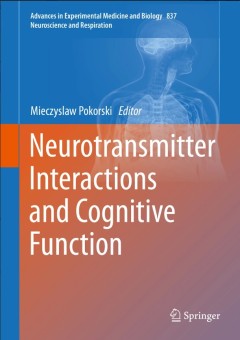
Neurotransmitter Interactions and Cognitive Function
A host of neurotransmitters and neuroactive substances underlies respiratory regulation in health and disease. The centerpiece of investigations regarding adaptation to hypoxia and sensorial perception has been the dopaminergic system. It is now clear that a complex interaction among various neuroactive substances, rather than a single one, forms the basis of respiratory changes. The research o…
- Edition
- 1
- ISBN/ISSN
- 978-3-319-10005-0
- Collation
- IX, 67
- Series Title
- Advances in Experimental Medicine and Biology
- Call Number
- -
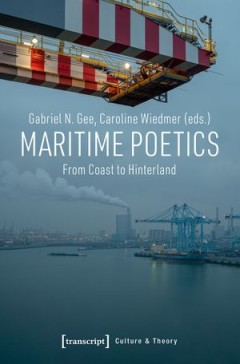
Maritime Poetics: From Coast to Hinterland
In the past fifty years, port cities around the world have experienced considerable changes to their morphologies and their identities. The increasing intensification of global networks and logistics, and the resulting pressure on human societies and earthly environments have been characteristic of the rise of a »planetary age«. This volume engages with contemporary artistic practices and cri…
- Edition
- -
- ISBN/ISSN
- 9783732850235
- Collation
- -
- Series Title
- -
- Call Number
- 307.2 MAR m

Living in Refuge: Ritualization and Religiosity in a Christian and a Muslim P…
This comparative ethnography of a Muslim and a Christian Palestinian refugee camp in Lebanon focuses on contrasting social belonging processes through a ritualization approach. Leonardo Schiocchet argues that contrasts emerge out of the intersectionality of religiosity, nationhood, refugeeness and politics, and synthesizes academic research on piety and moral self-cultivation and on the everyda…
- Edition
- -
- ISBN/ISSN
- 9783839460740
- Collation
- -
- Series Title
- -
- Call Number
- 351.81 SCH l
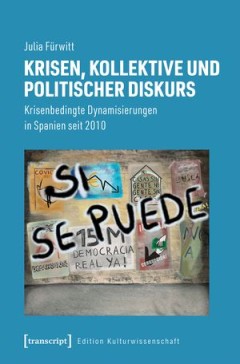
Krisen, Kollektive und politischer Diskurs: Krisenbedingte Dynamisierungen in…
Können Krisen Veränderungen gesellschaftlicher Ordnungsverhältnisse und die Etablierung neuer Diskurs-Akteure bewirken? Julia Fürwitt geht dieser Frage anhand multipler gesellschaftlicher Krisensituationen Spaniens seit 2010 nach. Basierend auf den Ansätzen Michel Foucaults und Bruno Latours erarbeitet sie einen neuen diskursanalytischen Ansatz, der angesichts gegenwärtiger gesellschafts�…
- Edition
- -
- ISBN/ISSN
- 9783839462072
- Collation
- -
- Series Title
- -
- Call Number
- 300 FUR k
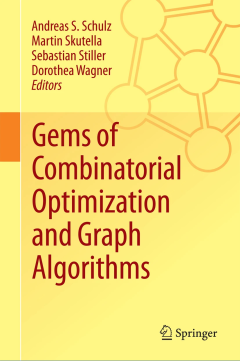
Gems of Combinatorial Optimization and Graph Algorithms
Are you looking for new lectures for your course on algorithms, combinatorial optimization, or algorithmic game theory? Maybe you need a convenient source of relevant, current topics for a graduate student or advanced undergraduate student seminar? Or perhaps you just want an enjoyable look at some beautiful mathematical and algorithmic results, ideas, proofs, concepts, and techniques in disc…
- Edition
- -
- ISBN/ISSN
- 978-3-319-24970-4
- Collation
- -
- Series Title
- -
- Call Number
- 658.54
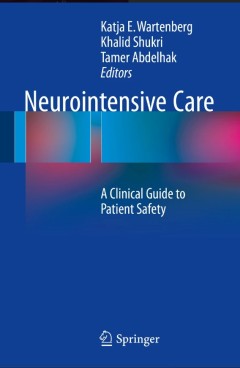
Neurointensive Care:A Clinical Guide to Patient Safety
This book provides guidance for physicians confronted with acute neurological crises in the context of patient safety centred practice standards. It highlights how the implementation of patient safety standards in the neurointensive care unit leads to better clinical outcomes and emphasizes the importance of utilizing appropriate resources, ensuring evidence-based practice is followed. Cost eff…
- Edition
- 1
- ISBN/ISSN
- 978-3-319-17292-7
- Collation
- XII, 342
- Series Title
- -
- Call Number
- -
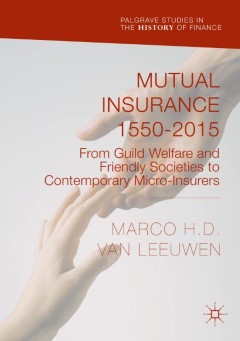
Mutual Insurance 1550-2015
In the modern Western world, we tend to be insured by the state or for-profit insurers. We have privileged this system over mutual or micro-insurance, whose long and rich history we tend to forget. Yet, mutual and micro-insurance is becoming increasingly important, both in the Western and in the non-Western world and bears re-examination. This book traces the track record of mutual insurance…
- Edition
- 1
- ISBN/ISSN
- 978-1-137-53109-4
- Collation
- XIII, 321
- Series Title
- Palgrave Studies in the History of Finance
- Call Number
- -
 Computer Science, Information & General Works
Computer Science, Information & General Works  Philosophy & Psychology
Philosophy & Psychology  Religion
Religion  Social Sciences
Social Sciences  Language
Language  Pure Science
Pure Science  Applied Sciences
Applied Sciences  Art & Recreation
Art & Recreation  Literature
Literature  History & Geography
History & Geography